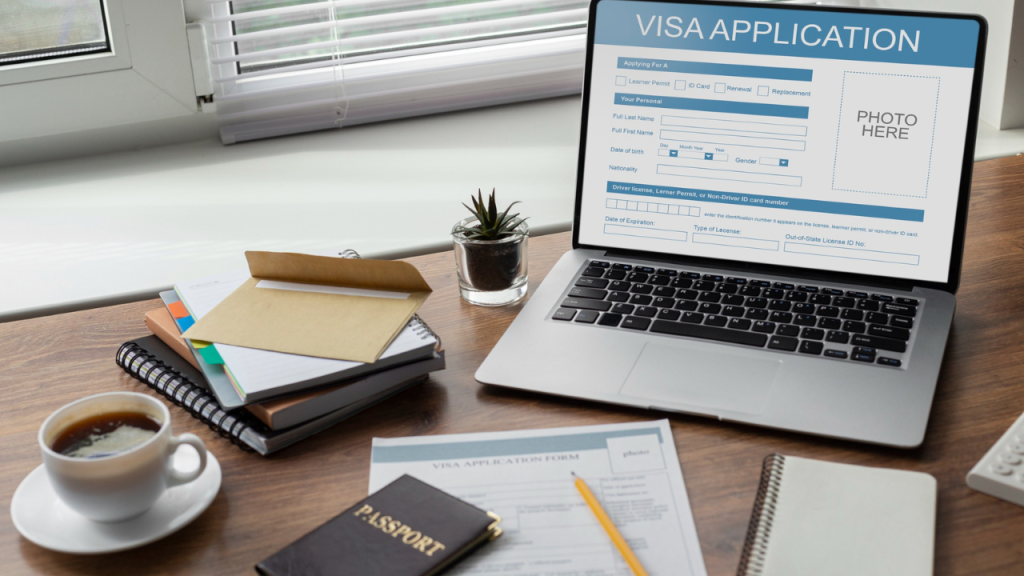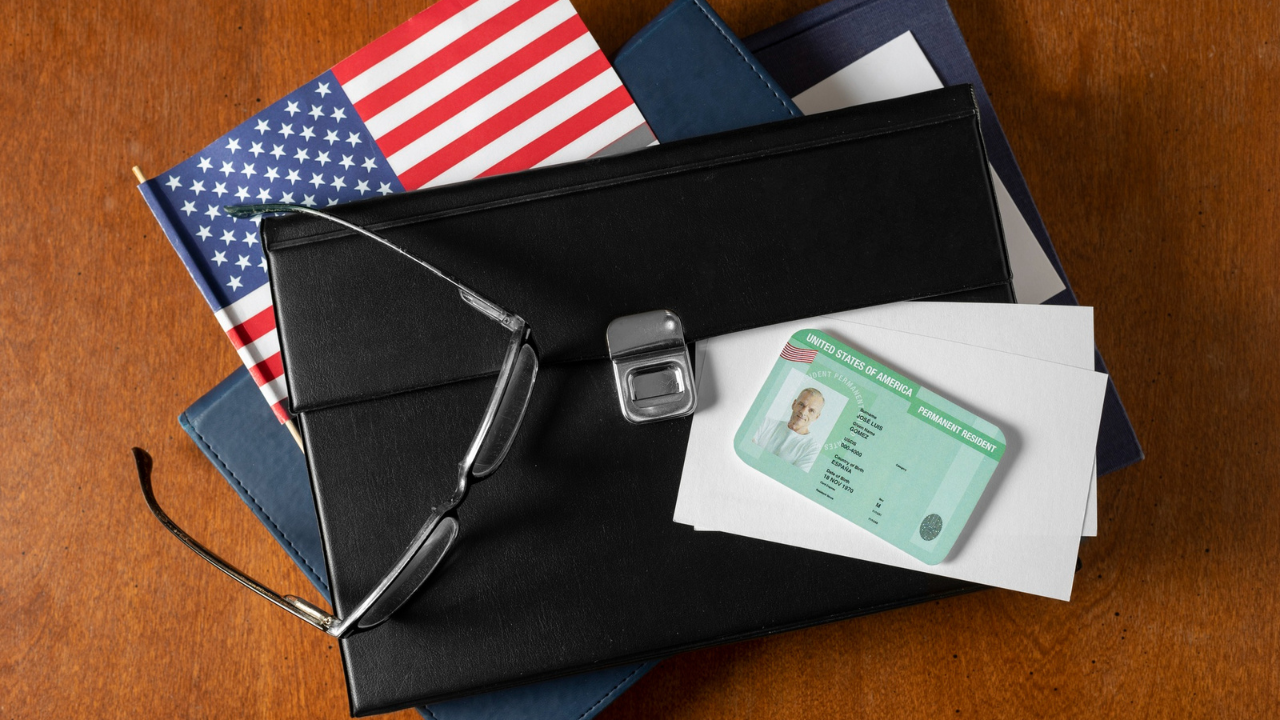Table Of Contents
- Which Type Of Immigrant Visa Should You Go For?
- Which Specific Immigrant Visa Should You Apply For?
- Family-Based Visas
- Adoption-Based Visas
- Diversity-Based Visa
- Employment-Based Visas
- Filling Out Your USCIS Forms
- Family-Based Visas
- Adoption-Based Visas
- Employment-Based Visa
- What Other Documents Do You Need To Prepare For Your U.S. immigrant Visa Application?
- Is There Anything You Can Do To Boost Your Odds Of An Approved Application?
Know Your US Immigration Visas: Which Type Will Get You There?
For a lot of us, immigrating to the US is a long-cherished dream. Who among us doesn’t have relatives, maybe even immediate family members, who live somewhere in the US? Or which of us hasn’t seen movies and fantasised about moving to an iconic American city?
The thing is, with some 30 immigrant visa types to choose from, even just choosing the visa to apply for can be a real challenge in itself. Then, even after deciding on a visa to go for, many of us struggle with the paperwork and preparations, oftentimes guessing or making decisions based on hearsay or urban legends.
Before you plunge into the application process willy-nilly, you should know that applying for a US immigration visa isn’t cheap, and it takes a goodly amount of time and effort to find out what you need to know and collect documents. The prospect of wasted effort alone should encourage you to make your choice of a visa type extra carefully.
Which Type Of Immigrant Visa Should You Go For?
There are four different types of immigrant US visas:
- Family-based visas are for someone who’s related to a green card holder or a US citizen.
- Adoption-based visas are for non-American orphans to move to the states to live with their adoptive parents.
- Diversity-based visa enables nationals from countries with very few immigrants moving to the US to immigrate to the states.
- Employment-based visas allow you to immigrate because you made a major investment, have permanent employment in the US, or are considered a “special immigrant”.
Which Specific Immigrant Visa Should You Apply For?

Here are the specific visas you can apply for under each type. As you can see, not all the types may apply to you, or there may be more than one type that might be relevant. It’s advisable to consult a firm such as the Immigration Law Group to help you decide.
Family-Based Visas
- IR1 and CR1 visas are for the spouse of a US citizen.
- CR1 visa is also for the spouse of a US citizen.
- K1 visa is for the fiancé or fiancée of a US citizen.
- K2 visa is for children of a K1 visa holder.
- K3 visa is for the spouse of a US citizen who has sent in an I-30 immigrant petition but hasn’t been approved yet.
- K4 visa is for children of a K3 visa holder.
- IR2 visa is for children of US citizens who are under 21 and not married.
- IR5 visa is for parents of US citizens who are over 21.
- CR2 visa is for children of conditional residents who are under 21 and not married.
- F1 visa is for adult, unmarried children of a US citizen.
- F2A visa is for the spouse or children of a US lawful permanent resident.
- F2B visa is for adult children of a US lawful permanent resident.
- F3 visa is for adult married children of a US citizen.
- F4 visas are for brothers or sisters of a US citizen.
Adoption-Based Visas
- IR3 and IR4 visas are for orphans from a non-Hague country who were adopted by a US citizen.
- IH3 visa is for orphans from Hague Convention countries who can become a US citizen automatically.
- IH4 visa is for orphans from Hague Convention countries who can become US citizens after being adopted by a US citizen.
Diversity-Based Visa
- DV visa is for emigrants from countries with very few citizens who have immigrated to the US.
Employment-Based Visas
- EB1 visa is for priority workers who are most preferred by the US government.
- EB2 visa is for workers who are the second most preferred by the US government for having exceptional abilities or an advanced degree.
- EB3 visa is for workers and professionals who are the third most preferred by the US government.
- EB 4 visa is for “special immigrants” who are the fourth-most preferred by the US government, such as religious workers, Afghan and Iraqi interpreters, translators, or other workers who used to work for or did work for the US government. Also included are returning residents who used to be lawful permanent residents of the US when they left, but have always wanted to come back someday.
- EB5 visa is for immigrants who are the fifth-most preferred by the US government for investing in the US or creating jobs for Americans.
Filling Out Your USCIS Forms
US Citizenship and Immigration Services or USCIS is going to require you to fill out the proper forms depending on the type of visa you choose.
Family-Based Visas
- Form I-129F is what you’ll need if you’re engaged to a US citizen.
- Form I-130 is what you’ll need if you’re related to or an immediate family member of a US citizen.
Adoption-Based Visas
- Form 1-800A is the Determination of the Suitability to Adopt A Child from a Convention Country, used for orphans being adopted by a US citizen.
Employment-Based Visa
- Form I-140 is what you’ll need if you’re a worker on the way to the US to work for a company based there.
- Form I-526 is what you’ll need if you plan on taking the investment route to immigration.
Apart from these forms, you’ll need a Form DS-260 (don’t worry, this one’s electronic this time), which you’ll send to your country’s US Embassy. It’s a good idea to save this form because there’s a chance that the National Visa Center or NVC will ask for it.
What Other Documents Do You Need To Prepare For Your U.S. immigrant Visa Application?
You’ll need to present the originals of these documents and have photocopies ready to submit, and you’re going to have to submit them even if you already sent them to USCIS or the NVC along with your forms.
If your documents are in a foreign language, you’re also going to need certified translations. If you’re applying for more than one person, you’re going to need a set of these for each applicant.
- A passport that is valid for a minimum of six months after the date you plan on travelling to the US
- Photo in colour, which is 2 x 2 inches (5.08 cm), taken in the last six months
- Marriage certificate (or annulment or divorce, and death certificates)
- Military records (if you served with the armed forces of your country)
- Police certificate (and prison documents or deportation records)
- Employment letter or an Affidavit of support
- Documents that prove your relationship with the US citizen making the petition for you
- Proof of payment for all the visa fees
Is There Anything You Can Do To Boost Your Odds Of An Approved Application?
Whether you choose an employment-based or family-based (or any other type, if it applies to you) visa type, the best thing you can do is to ask someone who’s helped other people like you with their visa applications.
Immigration attorneys such as Davies and Associates give you an edge right off the bat. Not only will they help you choose the right visa type, but even guide you through preparing your documents, filling out your forms, practising for your interview, and every other step leading to your landing and settling in the US.
Read Also:















